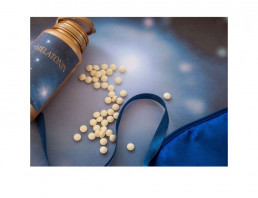Sleep, Melatonin & Breast Cancer
Insomnia
Sleep is required for survival in mammals. Adequate amounts are necessary for normal motor and cognitive function. It helps a person recover from illness, cope with stress and solve problems. Insomnia is the most common sleep problem. Primary insomnia is when a person is having sleep problems that are not directly associated with any other health condition or problem. Secondary insomnia is when a person is having sleep problems because of something else, such as a health condition including asthma, depression, cancer, pain or substance abuse.
What may cause insomnia?
Lifestyle, environment, psychological issues, menopause, illness or medical problems and some medications and supplements.
Melatonin
Melatonin, the hormone secreted by the pineal gland in our brain may also help reduce breast cancer. Studies are observational and experimental and mainly have been conducted on rodents.
What is the role of melatonin and breast cancer?
✨Melatonin helps decrease the incidence of breast cancer by enhancing the immune system. As we age, we lose the amount our body naturally produces melatonin, and hence our immune system declines.
✨Melatonin is also thought to block linoleic acid. Linoleic acid is a fat found in vegetable oils and is thought to promote tumor cells. Hence, melatonin helps reduce tumor size. Melatonin also helps fight cancer by fighting free radicals, and enhancing naturally occurring anti-oxidants such as glutathione, decreasing inflammation.
✨An interesting observation is the association of blind women with decrease incidence of breast cancer vs women that are night shift workers and flight attendants. This is thought to be caused by melatonin as blind women are not exposed to light and have higher levels of melatonin, vs workers that are working grave yard shifts.
What is the recommended dosage of melatonin and who should avoid melatonin?
✨Melatonin is available as a supplement, with the recommended dosage between 3 mg to 5 mg. It should be avoided by pregnant women, women wanting to become pregnant, breast-feeding, bleeding disorders, depression, diabetes, high blood pressure, seizure disorders or transplant recipients. Each person is different, so talk to your pharmacist and provider prior to supplementing.
References:
- González-González A, Mediavilla MD, Sánchez-Barceló EJ. Melatonin: A Molecule for Reducing Breast Cancer Risk. Molecules. 2018 Feb 6;23(2):336. doi: 10.3390/molecules23020336. PMID: 29415446; PMCID: PMC6017232. Accessed on 10/14/2020
